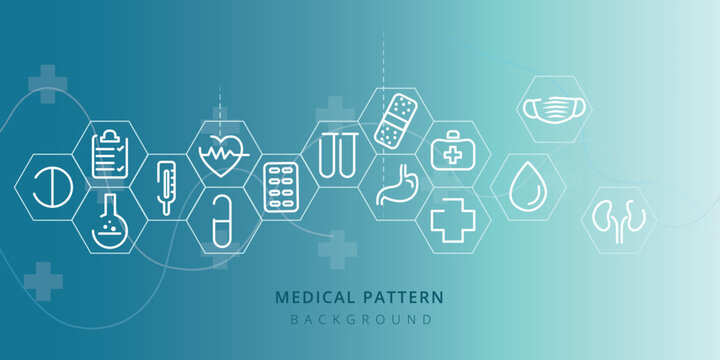Advancements in Monitoring Clinical Trials: Ensuring Reliability
Advancements in Monitoring Clinical Trials: Ensuring Reliability
Blog Article

In recent years, clinical research has experienced transformative advancements that have significantly enhanced the monitoring of clinical trials. As the foundation for new medical therapies and interventions, the reliability of clinical trials is paramount. The process of obtaining accurate data and ensuring participant safety demands rigorous oversight and innovative methodologies. With the integration of technology and data analytics, researchers are now better equipped to address challenges related to trial integrity and compliance.
These advancements not only improve the efficiency of clinical trials but also foster greater transparency and trust in the research process. From remote patient monitoring tools to sophisticated data management systems, the evolution of monitoring practices has paved the way for more reliable results. As the landscape of clinical research continues to change, it is essential to explore the tools and techniques that are shaping the future of trial oversight and, ultimately, the development of new medical therapies.
Technological Innovations in Clinical Trial Monitoring
As clinical research evolves, technological innovations play a crucial role in enhancing the monitoring of clinical trials. The integration of remote data collection tools allows researchers to gather real-time information from participants, ensuring a high level of accuracy and immediacy. Mobile applications and wearable devices are now common, enabling continuous tracking of patient health metrics such as heart rate, activity levels, and medication adherence. These technologies not only streamline data acquisition but also improve patient engagement, fostering a more participatory approach to clinical research.
Artificial intelligence and machine learning are becoming integral to the monitoring processes in clinical trials. These advanced analytics tools can identify patterns and anomalies in large datasets, allowing researchers to make informed decisions quickly. For instance, AI algorithms can analyze adverse event reports and flag potential risks, ensuring that participant safety is always prioritized. This proactive approach enhances the reliability of clinical research outcomes while also reducing the reliance on manual monitoring, which can be time-consuming and prone to human error.
Additionally, cloud-based platforms are transforming the way data is stored and shared within clinical research networks. These systems promote seamless collaboration among researchers, sponsors, and regulatory bodies, enhancing transparency throughout the trial process. By centralizing data access, stakeholders can easily track progress, validate findings, and facilitate regulatory submissions. The shift towards digital solutions is likely to accelerate the efficiency of clinical trials, ultimately leading to faster drug development and improved patient outcomes.
Data Integrity and Reliability Measures
Ensuring data integrity is a fundamental aspect of clinical research. It involves implementing stringent procedures to validate the accuracy and consistency of data collected throughout the trial process. Researchers must establish clear protocols for data entry, storage, and retrieval, ensuring that all information is logged correctly and can be traced back to its original source. Regular audits and reviews play a crucial role in identifying discrepancies and maintaining the quality of the data, thereby enhancing the reliability of the trial outcomes.
Clinical Research Certificate
Technological advancements have significantly contributed to improving data integrity in clinical trials. The incorporation of electronic data capture systems allows for real-time data monitoring and reduces the risk of human error associated with manual data entry. Additionally, secure cloud-based platforms enable researchers to store data safely while providing easy access to authorized personnel for verification and analysis. The integration of artificial intelligence and machine learning can further assist in data validation processes, flagging potential inconsistencies for immediate review.
Moreover, fostering a culture of accountability and transparency among all stakeholders is vital. Training site personnel on the importance of data integrity and the consequences of inaccuracies is essential in creating an environment where adherence to protocols is prioritized. Each team member should understand their role in ensuring that the data remains reliable, as this directly impacts the integrity of the study findings. By emphasizing these measures, clinical trials can achieve higher standards of credibility and ultimately contribute to more effective healthcare solutions.
Future Trends in Clinical Trial Oversight
The landscape of clinical trial oversight is evolving rapidly due to advancements in technology and increasing regulatory demands. One significant trend is the integration of real-time data monitoring systems. By leveraging wearable devices and mobile applications, researchers can collect patient data continuously, allowing for immediate insights into efficacy and safety. This shift enables sponsors to make timely decisions and adjustments to trial protocols based on real-world evidence, thereby enhancing trial reliability.
Another promising trend is the rise of artificial intelligence and machine learning in monitoring clinical trials. These technologies can analyze vast amounts of data to identify patterns, predict outcomes, and detect anomalies in trial conduct. AI-driven platforms are becoming instrumental in improving risk management strategies, ensuring that sites adhere to protocols, and optimizing patient recruitment efforts. This proactive approach not only streamlines operations but also ensures a higher standard of reliability in clinical research.
Lastly, there is a growing emphasis on patient-centric approaches in trial oversight. Incorporating patient feedback into the design and monitoring phases of clinical trials can help align studies with patient needs and preferences. Enhanced communication channels between researchers and participants foster transparency and trust, which are critical for trial success. This trend reflects a broader understanding that patient engagement is vital for ensuring the validity and ethical standards of clinical research, ultimately leading to more reliable outcomes.
Report this page